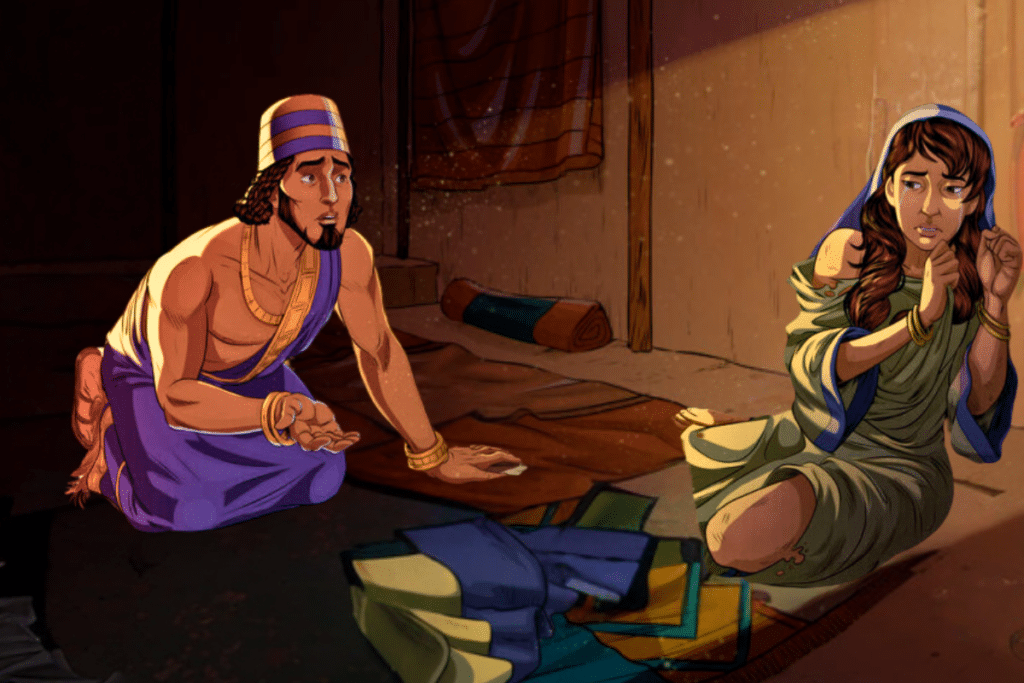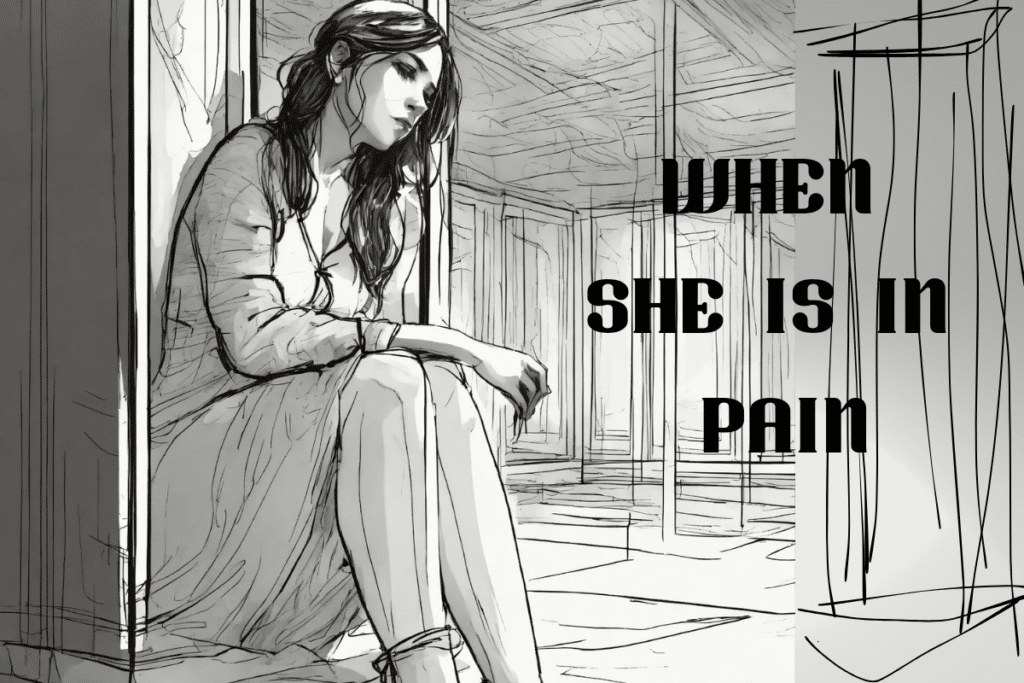DECENT DINAH IN THE BIBLE
Dinah in the Bible, is the daughter of Jacob and Leah, and sister to Simeon and Levi. She is first introduced in Genesis 34, where she is described as visiting the women of the land. During her visit, she is raped by Shechem, the son of Hamor the Hivite, the ruler of the area. The story of Dinah is a controversial and unsettling one, as it involves her being raped and later used as a pawn in a series of events that ultimately result in the massacre of the men of Shechem by her brothers.
The narrative highlights the tensions between the Jacob group as outsiders and the Canaanites as the indigenous inhabitants of the land, reflecting the dilemma of small groups struggling to survive by remaining separate and distinctive. The story has been subject to various interpretations throughout history, with some early Christian and Jewish exegetes blaming Dinah for her own rape, while more recent interpretations have criticized this view, arguing that it places the blame on the victim rather than the perpetrator and ignores the power dynamics at play in the story.

The Story of Dinah in the Bible
Background of Dinah in the Bible
Dinah in the Bible, a significant figure, emerges from the lineage of Jacob, the granddaughter of Abraham, making her part of the ancestral line of the Israelites. Her background is rooted in the intricate family dynamics of the Old Testament narrative. As the daughter of Jacob, Dinah is depicted as a symbol of purity and innocence, embodying the virtues associated with her lineage. However, her story takes a dramatic turn when she becomes entangled in a series of events that shape her narrative.
Dinah in the Bible background is intertwined with the cultural and societal norms of ancient Near Eastern society. In this context, familial honor and reputation hold immense significance, shaping the behavior and actions of individuals within their communities. Dinah’s status as a daughter of Jacob places her within the framework of these cultural expectations, where her actions and interactions are scrutinized in relation to the honor of her family.

Encounter with Shechem
In Genesis 34 of the Bible, Dinah in the Bible encounter with Shechem, a prince of the land, unfolds. Shechem, captivated by Dinah’s beauty, forcefully takes her and violates her, bringing shame upon Dinah and her family. This act highlights the vulnerability of women in ancient societies and the disregard for consent prevalent at the time. Dinah’s violation sparks a series of events, including her brothers’ retribution, shedding light on the cultural norms and dynamics of ancient Near Eastern society.
The encounter with Shechem prompts reflection on issues of power, consent, and the consequences of unchecked desires. It serves as a poignant reminder of the challenges faced by women in patriarchal societies and the importance of respecting boundaries and autonomy in all interactions.

Retribution by Her Brothers
In the aftermath of Dinah’s violation by Shechem, her brothers Simeon and Levi devise a plan for retribution. They deceive Shechem and his people, convincing them to undergo circumcision as a sign of alliance. While Shechem and his people are weakened from the procedure, Simeon and Levi launch a surprise attack, killing them and rescuing Dinah. This act of retribution avenges Dinah’s honor and restores the family’s reputation in the eyes of their community.
However, the violent nature of their response raises moral questions about the appropriate limits of justice and the consequences of seeking vengeance. While Dinah’s brothers acted out of loyalty and a sense of duty to protect their sister, their actions resulted in further bloodshed and conflict. The retribution by Simeon and Levi serves as a reminder of the complexities of moral decision-making and the often blurred lines between right and wrong in the pursuit of justice.
Analysis of Dinah in the Bible
Cultural Context
Eastern society, where familial honor and reputation held immense significance. As the daughter of Jacob, Dinah’s actions and interactions were scrutinized in relation to the honor of her family. Her encounter with Shechem and the subsequent events reflect the patriarchal norms and power dynamics prevalent at the time, where women were often viewed as property to be claimed by men.
The violation of Dinah in the Bible brought shame upon her and her family, necessitating a response to restore their honor and dignity. The retribution enacted by her brothers, Simeon and Levi, highlights the importance of loyalty and solidarity within familial bonds, even in the face of moral ambiguity. Story of Dinah in the Bible prompts reflection on the complexities of morality, justice, and the blurred lines between right and wrong in ancient societies. It also offers insight into the challenges faced by women and the ways in which their experiences intersected with broader cultural norms and expectations.
Lessons Learned from Dinah in the Bible
- The Importance of Consent: Dinah’s story highlights the importance of consent in all interactions, particularly in matters of intimacy. Her violation by Shechem underscores the necessity of respecting boundaries and seeking mutual agreement in relationships.
- The Consequences of Revenge: While Dinah’s brothers sought revenge for her defilement, their actions resulted in further violence and bloodshed. This serves as a cautionary tale about the dangers of seeking vengeance and the cycle of retribution it can perpetuate.
- The Power of Family Bonds: Despite their flaws, Dinah’s brothers acted out of love and loyalty to their sister. Their fierce protection of her honor demonstrates the strength of familial bonds and the lengths to which family members may go to support and defend each other.
- The Complexity of Morality: The story of Dinah in the Bible raises complex moral questions about justice, vengeance, and forgiveness. It challenges us to consider the gray areas of morality and the difficult choices individuals may face in seeking justice while grappling with their own emotions.
- Resilience in Adversity: Despite the trauma she endured, Dinah’s story also showcases her resilience in the face of adversity. She is not defined solely by her victimhood but emerges as a symbol of strength and perseverance, reminding us of the human capacity to overcome hardship and thrive despite challenges.
Legacy of Dinah in the Bible
Influence on Biblical Narratives
Dinah in the Bible, influences Biblical narratives by highlighting the themes of honor, justice, and familial loyalty. It underscores the significance of maintaining family reputation and integrity, as seen in Simeon and Levi’s drastic actions to avenge their sister’s honor.
Additionally, it serves as a cautionary tale about the dangers of intermingling with foreign cultures and the potential consequences of such interactions. The story reflects the patriarchal society of the time, where women’s roles were often defined by their relationships with men and their honor was closely tied to the family’s honor.
Dinah’s narrative contributes to the broader Biblical themes of morality, the consequences of sin, and the complexities of human relationships within the context of ancient Near Eastern culture.
Interpretations in Judaism and Christianity
In Judaism, Dinah in the Bible is interpreted through various lenses, with some viewing her as a tragic figure whose violation brought shame upon her family. Others see her as a symbol of resilience and strength, highlighting her ability to overcome adversity.
In Christianity, Dinah’s narrative is often explored within the broader context of biblical themes such as justice, forgiveness, and redemption. Some interpretations emphasize the importance of seeking justice for victims of wrongdoing, while others focus on the themes of forgiveness and redemption, highlighting Dinah’s ability to find healing and restoration despite her traumatic experience.
Overall, interpretations of Dinah’s story in both Judaism and Christianity offer valuable insights into the complexities of human nature, morality, and the ways in which biblical narratives continue to resonate with contemporary audiences.
Characteristics of Dinah in the Bible
- Innocence and Purity: Dinah is often depicted as a symbol of innocence and purity, as she is the victim of a violent act committed against her without her consent.
- Resilience: Despite the trauma she experiences, Dinah demonstrates resilience in the face of adversity. She does not allow herself to be defined solely by her victimhood but shows strength in navigating the challenges presented to her.
- Family Loyalty: Dinah’s story highlights her strong bond with her brothers, who take swift and decisive action to avenge her honor. This underscores her loyalty to her family and their protective instincts towards her.
- Vulnerability: Dinah’s vulnerability is evident in her encounter with Shechem, where she becomes the victim of a predatory act. This vulnerability serves to humanize her character and evoke empathy from readers.
- Cultural Significance: Dinah’s story reflects the cultural norms and practices of the ancient Near Eastern society in which she lived. Her violation and the subsequent actions of her family shed light on the dynamics of honor, shame, and justice in that cultural context.
- Symbolism: Dinah’s character holds symbolic significance beyond her individual story. She represents themes of purity, victimhood, and resilience that resonate with broader narratives found throughout the Bible.
Conclusion
Dinah in the Bible offers a poignant reflection on themes of honor, justice, and resilience within the cultural and societal context of ancient Near Eastern society. Despite her brief mention in the biblical narrative, Dinah emerges as a complex character whose experiences resonate with timeless truths about human nature.
From her encounter with Shechem to the retribution enacted by her brothers, Dinah in the Bible narrative prompts deep reflection on issues of consent, power dynamics, and the pursuit of justice. Her story also highlights the enduring significance of familial bonds and the lengths to which individuals may go to protect their loved ones and preserve their honor. Overall, Dinah’s story serves as a powerful reminder of the complexities of morality and the enduring relevance of biblical narratives in exploring the human condition.
REFERENCE
Unique FAQ’s
- Was Dinah punished for the actions of Shechem?
- No, Dinah was not punished for Shechem’s actions. Instead, her brothers took matters into their own hands to seek justice for her violation.
- What significance does Dinah’s story hold in modern times?
- Dinah’s story prompts reflection on issues of consent, justice, and the importance of standing up against wrongdoing in contemporary society.
- Are there differing interpretations of Dinah’s character?
- Yes, interpretations of Dinah vary among different religious traditions and scholarly perspectives, ranging from victim to heroine.
- How does Dinah’s story reflect the cultural norms of her time?
- Dinah’s story reflects the emphasis on family honor and the patriarchal structure of ancient Near Eastern societies.
- What lessons can we learn from Dinah’s story?
- Dinah’s story teaches lessons about the consequences of unchecked desires, the importance of seeking justice, and the complexities of human relationships.


1 thought on “9. DECENT DINAH IN THE BIBLE”